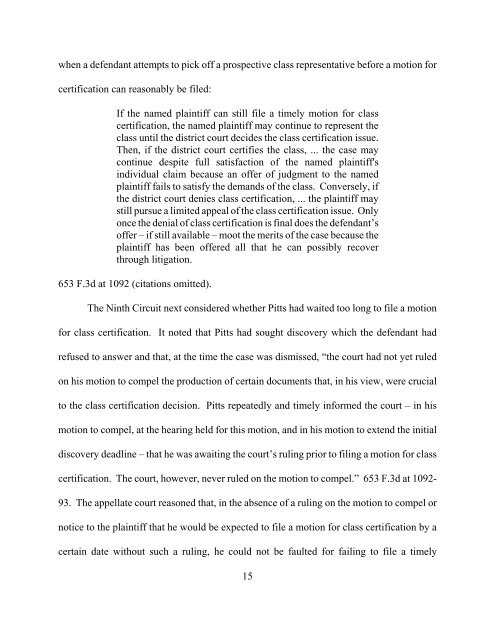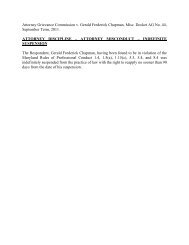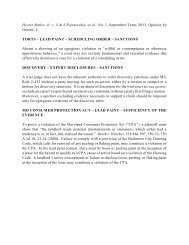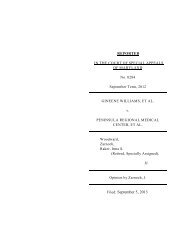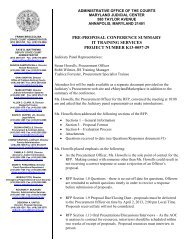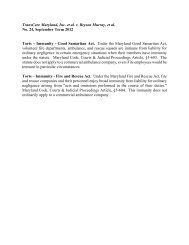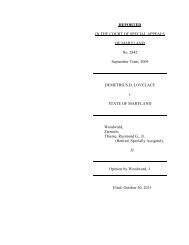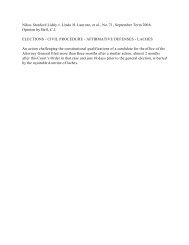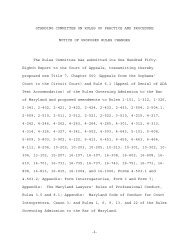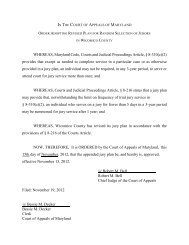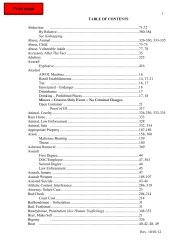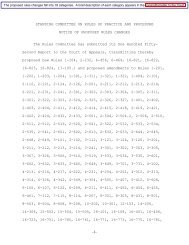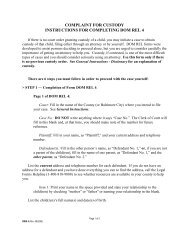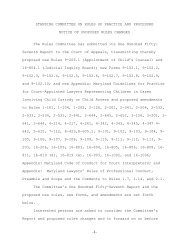Anthony M. Frazier v. Castle Ford, Ltd., f/k/a ... - Maryland Courts
Anthony M. Frazier v. Castle Ford, Ltd., f/k/a ... - Maryland Courts
Anthony M. Frazier v. Castle Ford, Ltd., f/k/a ... - Maryland Courts
You also want an ePaper? Increase the reach of your titles
YUMPU automatically turns print PDFs into web optimized ePapers that Google loves.
when a defendant attempts to pick off a prospective class representative before a motion for<br />
certification can reasonably be filed:<br />
If the named plaintiff can still file a timely motion for class<br />
certification, the named plaintiff may continue to represent the<br />
class until the district court decides the class certification issue.<br />
Then, if the district court certifies the class, ... the case may<br />
continue despite full satisfaction of the named plaintiff's<br />
individual claim because an offer of judgment to the named<br />
plaintiff fails to satisfy the demands of the class. Conversely, if<br />
the district court denies class certification, ... the plaintiff may<br />
still pursue a limited appeal of the class certification issue. Only<br />
once the denial of class certification is final does the defendant’s<br />
offer – if still available – moot the merits of the case because the<br />
plaintiff has been offered all that he can possibly recover<br />
through litigation.<br />
653 F.3d at 1092 (citations omitted).<br />
The Ninth Circuit next considered whether Pitts had waited too long to file a motion<br />
for class certification. It noted that Pitts had sought discovery which the defendant had<br />
refused to answer and that, at the time the case was dismissed, “the court had not yet ruled<br />
on his motion to compel the production of certain documents that, in his view, were crucial<br />
to the class certification decision. Pitts repeatedly and timely informed the court – in his<br />
motion to compel, at the hearing held for this motion, and in his motion to extend the initial<br />
discovery deadline – that he was awaiting the court’s ruling prior to filing a motion for class<br />
certification. The court, however, never ruled on the motion to compel.” 653 F.3d at 1092-<br />
93. The appellate court reasoned that, in the absence of a ruling on the motion to compel or<br />
notice to the plaintiff that he would be expected to file a motion for class certification by a<br />
certain date without such a ruling, he could not be faulted for failing to file a timely<br />
15


